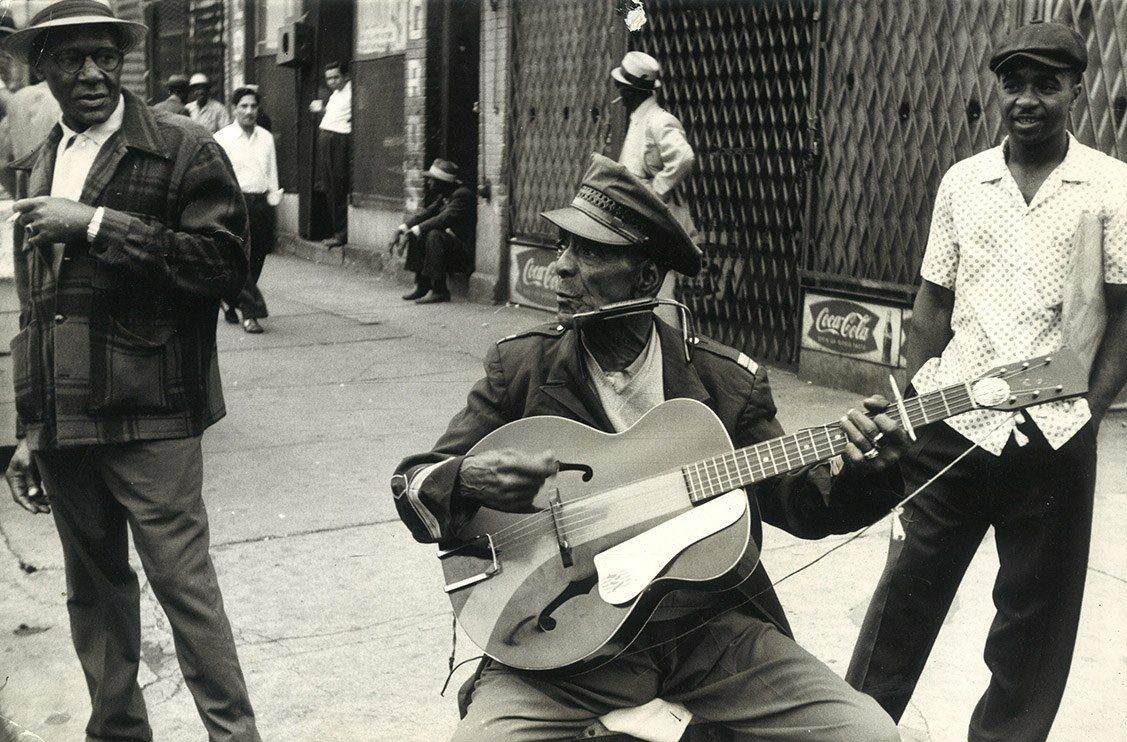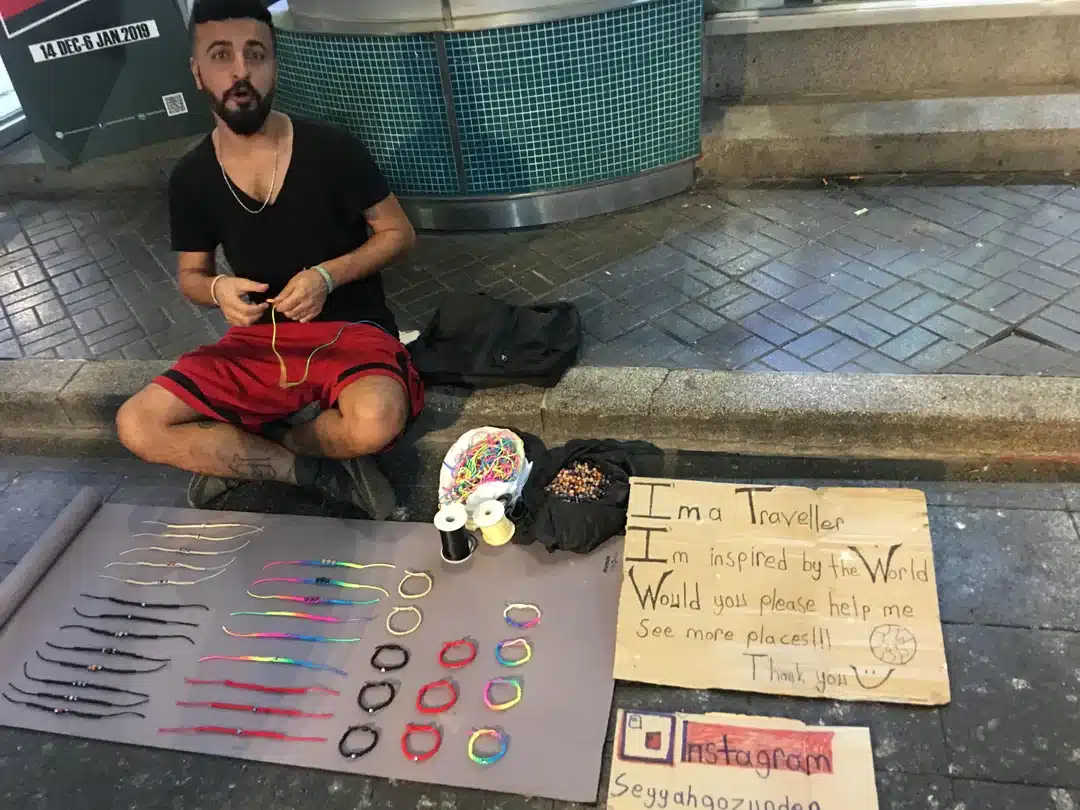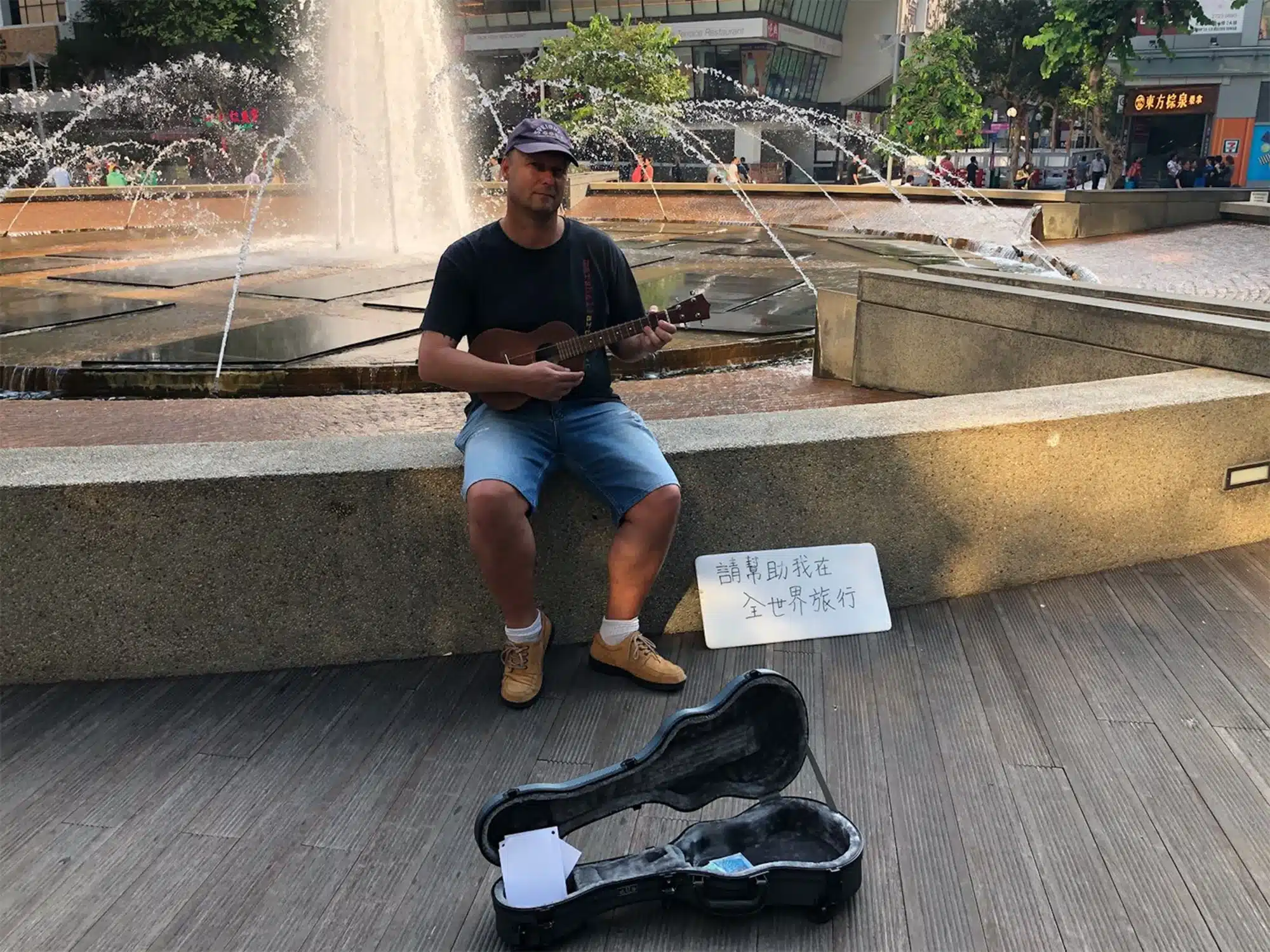Begpackers, buskers, and the ethics of modern travel
The complicated and controvesial image of the modern nomad

In times past, the image of a wanderer abroad was synonymous with romantic adventure. From the 19th-century Grand Tour to the beat poets hitchhiking across Europe and Asia, travel was seen as a rite of passage for the young and curious. Wilfred Thesiger, who travelled through the Arabian deserts in the 1940s, captured the classic Western fascination with distant and unfamiliar places when he wrote…
“The harder the life, the finer the people.”
In contrast, the modern nomad’s image is far more complicated, especially when they’re holding a cardboard sign on a street corner in Bangkok asking for spare change to see the world.
Welcome to the age of begpacking.
A begpacker (a portmanteau of beggar and backpacker) is a tourist, often Western, who funds their travels in developing countries by busking, selling trinkets, or directly asking strangers for money. You might see them strumming a guitar beneath a skytrain station in Bangkok, selling handmade bracelets in Bali, or sitting cross-legged on a curb with a sign reading Help me travel the world.
On this page
| Jump to section | Description |
|---|---|
| Between the beats and the begging | The image of a resourceful traveller is sometimes romanticised, but begpacking brings a modern version that feels uncomfortable for locals in places like Southeast Asia. |
| The vagrant abroad? | While the term “vagrant” often carries a negative connotation, not all begpackers fit that mould, with some relying on generosity for genuine travel issues. |
| A tale of two buskers | There’s a meaningful difference between begging and busking, but in some countries, even busking feels tone-deaf given local incomes. |
| Beg packing 2.0: The online hustle | The digital era has added an online component to begpacking, with people asking for donations via GoFundMe or Instagram to fund their travels. |
| Escaping the desk job | For some, living hand-to-mouth while travelling is a rejection of the 9 to 5 lifestyle and a way to embrace freedom and exploration. |
| Regional attitudes: From open doors to luxury lobbies? | Asia’s views on budget travel are diverging, with some places embracing the low-cost traveller, while others, like Thailand, shift towards high-value, luxury tourism. |
| A blurred reality | The lines between genuine travellers, creative wanderers, and freeloaders are often blurred, leaving room for complex perspectives on begpacking. |
Between the beats and the begging

Reactions are predictably mixed. On one side, there’s the romantic vision of the resourceful traveller selling shell necklaces or serenading passers-by. As Will Hatton, founder of The Broke Backpacker blog, puts it…
“Whilst it is not OK to beg whilst travelling, there is nothing wrong (or new) with busking or selling handmade jewellery on the side of the road. If you are sharing a skill or selling a product, I don’t see the harm.”
Indeed, the travelling entertainer is hardly a new phenomenon. Dickensian street performers, post-war buskers, and 1960s hippies all made a living from music and movement. In some ways, begpacking may just be a modern version of this age-old lifestyle.
But for many, especially locals in Southeast Asia, the trend makes them feel uncomfortable. Social media has been flooded with criticism.
One tweet read, “#begpackers are an absolute shame. Seriously, can’t believe people are doing this.”
The vagrant abroad?

In online debates, the word vagrant often surfaces, typically with a negative connotation. Traditionally, a vagrant is someone who wanders from place to place without a fixed home or lawful means of support. It’s a term once used to criminalise poverty, particularly in 19th-century England and early 20th-century America.
But can that same label be applied to a tourist from a developed country, armed with an iPhone, a backpack full of gear, and the means to call home in an emergency? There’s a widespread assumption that all Western begpackers have wealthy families and a safety net, but that’s not always true.
Sometimes, things go wrong while travelling. It could be a lost wallet, a cancelled card, or a medical issue, and people are left scrambling. It’s rare, but not unimaginable.
The problem is, there are travellers genuinely in crisis, and then there are travellers who’ve adopted financial precariousness as a lifestyle, relying on local generosity to keep moving.
A tale of two buskers
There’s a meaningful difference between begging and busking, and how that difference is perceived often depends on where you are. In London’s Underground, a busker is typically seen as a performer, not a panhandler. Coins are dropped; applause given.
But when the same scene plays out in Bangkok, Hanoi, or Bali, it often sparks backlash. Because in countries where the average income is a fraction of what it is in the West, it can come across as out of place, or even tone-deaf.
Beg packing 2.0: The online hustle

Like everything else, begpacking has gone digital. These days, instead of holding up cardboard signs, some travellers post donation links online.
GoFundMe pages, TikToks, and Instagram captions now ask strangers to help fund their adventures, often under the banner of “spreading good vibes.” One couple even crowdfunded their bike trip from Germany to Africa to “connect with humanity.”
It raises the question: Is online begging different from doing it on the street? Or does adding filters and hashtags just make it easier to overlook the same ethical concerns?
Escaping the desk job
There’s an underlying cultural tension here: the Western choice to live hand-to-mouth is, for some, a radical alternative to desk jobs and mortgages. It can be a way to escape, to explore, to live lightly as Hatton notes.
“It’s far more fun to travel the world on US$10 a day than to be chained to a desk.”
It can be one factor that drives someone to be a begpacker, and it can be thought of as something selfish but there are more factors to consider first before coming to this conclusion.
Regional attitudes: From open doors to luxury lobbies?

Across Asia, attitudes are diverging about begpackers. In Hong Kong, reports of budget travellers sleeping in 24-hour McDonald’s restaurants prompted public discussion. But Chief Executive John Lee struck a notably inclusive tone, saying…
“All types of travellers are welcome in Hong Kong, whether they stay in five-star hotels or budget accommodation.”
It was a soft nod to the idea that travel, even on a shoestring, still has value.
Thailand appears to be moving in a different direction. Recent campaigns by the Tourism Authority of Thailand have aimed to rebrand the country as a high-value, luxury destination, with an emphasis on wellness, premium resorts, and wealthy visitors.
If that trend continues, the age of the backpacker, let alone the begpacker, may be coming to a quiet end.
A blurred reality

It’s tempting to divide people into neat categories – begging is bad, busking is brave. But the reality is blurrier than that. Some travellers genuinely find themselves in a bind. Others are creative types trying to live lightly. And some are just freeloaders with a ukulele and a trust fund.
As for me, I try not to judge, but if someone’s asking for money to find themselves at a Full Moon Party, they won’t be getting it from me.
Latest Thailand News
Follow The Thaiger on Google News:


























